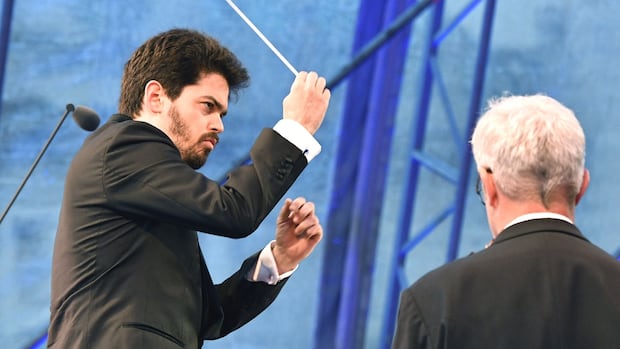European leaders have criticized a Belgian classical music festival for canceling an upcoming performance by an Israeli conductor due to concerns about his stance on the Gaza conflict. The Flanders Festival Ghent organizers announced the cancellation of a performance by the Munich Philharmonic Orchestra scheduled for September 18. The decision was based on worries regarding Lahav Shani, the orchestra’s future chief conductor.
Shani, originally from Tel Aviv and currently the director of the Israel Philharmonic Orchestra, was set to conduct the performance in Ghent. Despite Shani’s past statements advocating for peace and reconciliation, festival organizers expressed uncertainty about his position regarding the Tel Aviv government.
In a statement, the organizers mentioned their inability to ascertain Shani’s views on the Tel Aviv regime due to his role with the Israel Philharmonic Orchestra. They emphasized their choice to avoid collaborations with partners who have not distanced themselves from that government.
The festival, which draws 50,000 attendees annually for its three-week celebration of classical music, considered the Munich Philharmonic’s performance a significant highlight before its cancellation. While Shani did not respond to CBC’s request for comment, the Israel Philharmonic condemned the decision, asserting that nationality should not lead to professional bans in the arts.
Belgian Prime Minister Bart De Wever criticized the festival’s decision, stating that it harmed the country’s reputation and was irresponsible to impose a ban based on an individual’s origin. The cancellation also received backlash from Matthias Diependaele, the Flanders region’s minister-president, who stressed the importance of art in uniting people rather than creating divisions.
German officials, including Markus Blume and Wolfram Weimer, condemned the decision as shameful and anti-cultural, with Weimer labeling it as antisemitic. A petition by European musicians urging the festival to reverse the cancellation garnered over 11,000 signatures.
The festival’s artistic director defended the decision in an interview with the New York Times, explaining the difficulty in clarifying Shani’s views on the ongoing conflict and denying any antisemitic motivations. As the Gaza death toll rises and the Israel-Hamas conflict continues, artists have taken stands against perceived complicity in the attacks on Palestinians through pledges and boycotts in various artistic domains.



